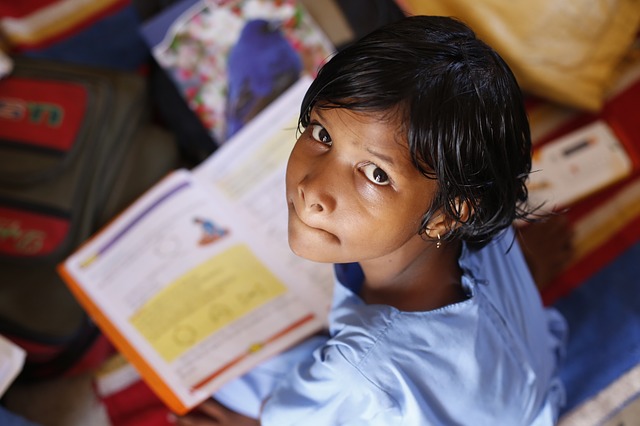clear
Why education for girls is not talked about enough?
clear

source:
akshayapatra
It is interesting to note that girls’ education, in specific, is most talked about. There was a time when in Eastern World it was considered useless to educate the girls. But the time has changed now.
Talking about Asian society in general and Pakistani society in specific, girls’ education has been discussed to a great extent. Even before Malala Yousufzai’s appearance on media, girls’ education was no more a taboo but a pride for family.
If we look at the Provincial level results of 10th grade and 12th grade for last ten years we can see that the girls secured more distinctions for them than the boys. The ratio of girls getting admissions in medical schools and other professional institutes is way more than the boys now.
Government issues more jobs for women than the men in order to get all those educated women to be employed.
There are some remote areas where girls are not allowed to be educated but the number of such places is few. And the mainstream media talks openly about girls education where it is needed as in the case of Malala.
 0
0
clear
Inspiring figures like Malala Yousafzai are helping to raise the profile of girls education, and what odds are at stake. For Malala to be wiling to risk her life to get an education shows just how important it is for girls on an individual level, as well as taken as a whole on a global scale, to get an education. But it also demonstrates that educating girls isn't just seen as not a priority by some groups, it is seen as an active threat to a culture or way of life.
Both the Taliban and Boko Haram (the latter's name literally means 'Western education is forbidden/sinful) are both actively opposed to the educating of girls, even to the point of lethal violence. In other countries the hurdles girls have to face are less dangerous but can be almost insurmountable. The expectation that girls, rather than boys, will take a share in taking care or domestic duties in the home, or in caring for elderly relatives, stands in the way of their ability to get away from that environment to attend school.
In many ways educating girls must start with educating the parents of girls, to realise how much value there is to them and their community in their daughters receiving an education. For communities that have never known their daughters to receive an education into adolescence or beyond, this can sometimes be difficult to imagine without clearl role models.
 0
0
clear
 Andrew Tildesley
8 years, 2 months ago
Andrew Tildesley
8 years, 2 months ago
For major economic, social, and political reasons, stepping foot inside a classroom of girls is out of the question. By educating a girl, the overwhelming benefits extend far beyond the classroom. The impact of giving a girl in a developing country a quality education can be felt in families, communities, and future generations. We’ve dedicated August to exploring the theme of “going back to school.” Yet for millions of girls, going to school is a very distant dream. These decisions helps with : Reducing Fertility Rates – The World Bank cites that when girls receive an education, they’ll have “fewer and healthier” babies. Lower Maternal and Child Mortality Rates – Girls who receive an education are less likely to contract HIV & AIDS, and thus, less likely to pass it onto their children Future Educated Generations – An African proverb says, “If we educate a boy, we educate one person. If we educate a girl, we educate a family – and a whole nation.” Investing in the Family – With these additional wages, research shows that women are more likely to invest in their family. In fact, the Basic Education Coalition claims that women will reserve 90% of their income to better their families.
 1
1
clear
 Wafa Benizid
8 years, 2 months ago
Wafa Benizid
8 years, 2 months ago